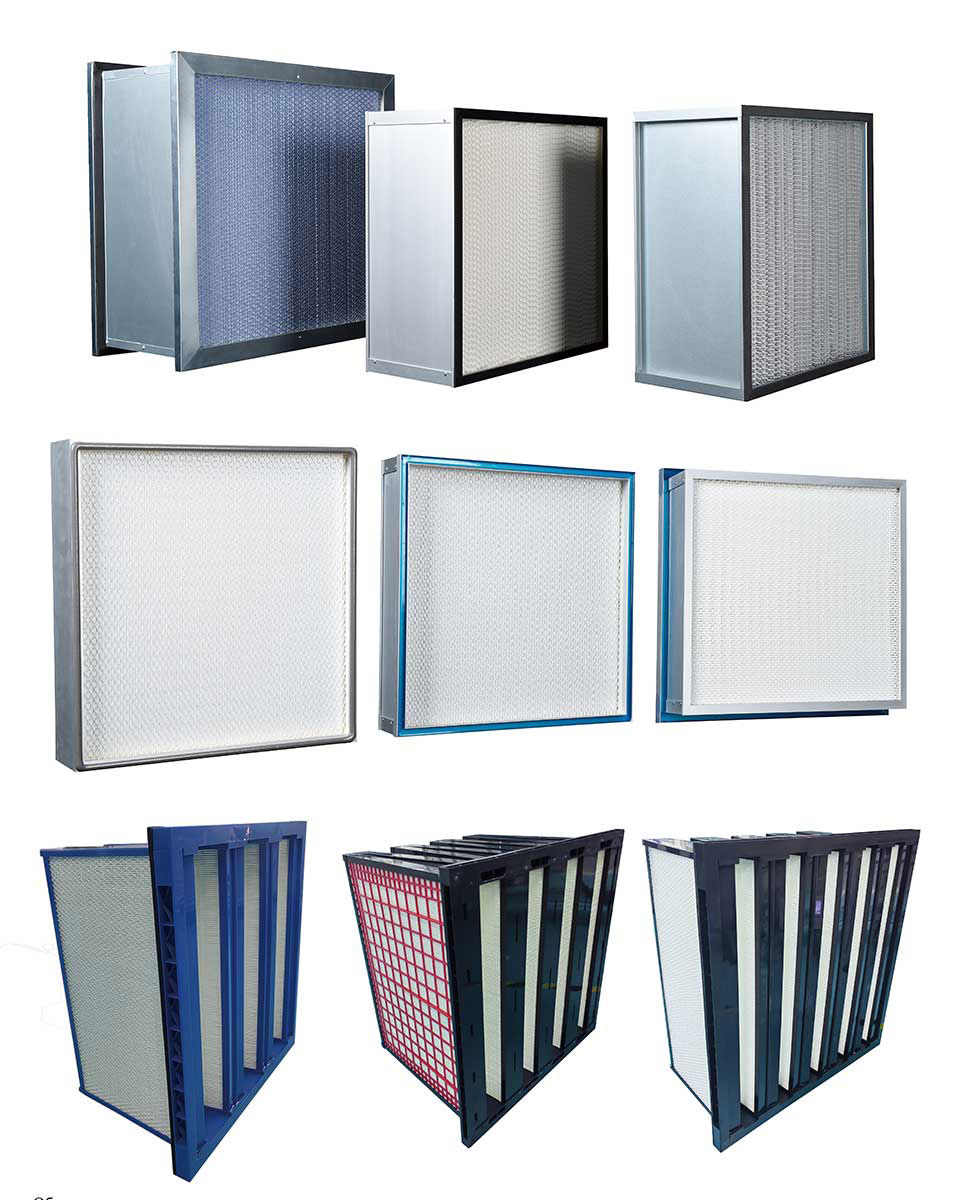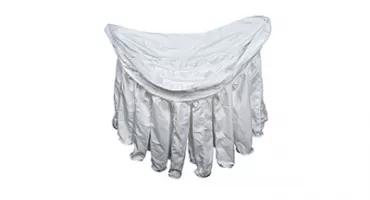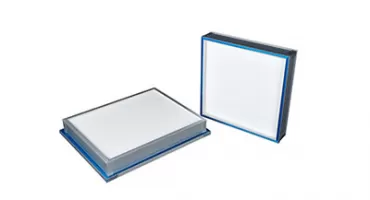 January 14, 2025
January 14, 2025
Clean air is vital for our health and well-being, and HEPA filter units have become the gold standard in air filtration. These units are trusted worldwide for their ability to remove microscopic particles, allergens, and contaminants from the air. In this comprehensive guide, we’ll dive into everything you need to know about HEPA filter units, from how they work to their applications and benefits.

A HEPA (High-Efficiency Particulate Air) filter unit is a device equipped with a specialized filter that traps at least 99.97% of airborne particles as small as 0.3 microns. To put that into perspective, a human hair is about 70 microns thick, making HEPA filters incredibly effective at capturing tiny particles.
- Residential settings: To improve indoor air quality in homes.
- Commercial spaces: Offices, hotels, and retail spaces.
- Medical facilities: Operating rooms, isolation units, and laboratories.
- Industrial environments: Factories and cleanrooms.
HEPA filters are designed to capture a wide range of contaminants, including:
- Dust and dirt
- Pollen and allergens
- Pet dander
- Mold spores
- Smoke particles
- Bacteria and viruses
This broad-spectrum filtration makes HEPA filter units an ideal choice for improving air quality in virtually any environment.
HEPA filter units use a combination of physical mechanisms to trap airborne particles:
1. Interception: Particles traveling through the air come into direct contact with the fibers of the filter and stick to them.
2. Impaction: Larger particles are unable to navigate around the dense fibers and collide with them, becoming trapped.
3. Diffusion: Extremely small particles move erratically (known as Brownian motion) and eventually get caught within the filter material.
Most HEPA filter units also include a fan that draws air through the filter, ensuring continuous filtration and circulation of clean air.
HEPA filter units provide numerous advantages, making them a worthwhile investment for both personal and professional use.
1. Improved Air Quality
By removing allergens, pollutants, and irritants from the air, HEPA filter units create a cleaner, healthier indoor environment.
2. Reduction in Allergies and Asthma Symptoms
HEPA filters effectively capture triggers like pollen, dust mites, and pet dander, offering relief to those with allergies or asthma.
3. Control of Airborne Diseases
HEPA filter units can capture bacteria and viruses, helping reduce the spread of illnesses in crowded or enclosed spaces.
4. Elimination of Odors
By trapping smoke particles and other odor-causing contaminants, these units improve the overall freshness of indoor air.
5. Compliance with Industry Standards
In industries such as healthcare, pharmaceuticals, and manufacturing, HEPA filter units are essential for meeting strict air quality regulations.
HEPA filter units are versatile and can be used in various settings:
1. Residential Use
Homeowners often install HEPA filters in their HVAC systems or use portable HEPA air purifiers to combat indoor air pollution.
2. Healthcare Facilities
HEPA filters are critical in maintaining sterile environments in hospitals, particularly in operating rooms and intensive care units.
3. Industrial Applications
Factories and cleanrooms rely on HEPA filter units to remove harmful particles from the air and protect sensitive equipment.
4. Transportation
Airlines and automotive manufacturers use HEPA filters in cabins and ventilation systems to ensure passenger safety and comfort.
5. Laboratories and Research Centers
HEPA filter units play a vital role in laboratories, preventing cross-contamination and maintaining controlled conditions.
When selecting a HEPA filter unit, it’s essential to consider your specific needs. Here are some factors to keep in mind:
1. Efficiency
Ensure the unit meets HEPA standards, typically certified to remove 99.97% of particles down to 0.3 microns.
2. Coverage Area
Choose a unit that matches the size of the space you want to purify. Larger spaces require higher-capacity filters and stronger fans.
3. Noise Level
For bedrooms or office spaces, look for a quiet model that won’t disrupt sleep or concentration.
4. Maintenance
Consider units with easily replaceable filters and clear maintenance instructions to ensure long-term performance.
5. Energy Efficiency
Opt for an energy-efficient model to minimize electricity costs, especially if you plan to run the unit continuously.
Regular maintenance is essential to keep your HEPA filter unit operating at peak efficiency. Here are some tips:
- Replace Filters on Time: Most HEPA filters need to be replaced every 6–12 months, depending on usage and the manufacturer’s recommendations.
- Clean Pre-Filters: Some units include washable pre-filters that trap larger particles. Clean these regularly to prolong the life of the main filter.
- Check for Blockages: Ensure the unit’s air intake and output vents are clear to maintain proper airflow.
- Monitor Performance: If you notice a drop in air quality or a change in airflow, it may be time to replace the filter or inspect the unit.
1. Can HEPA Filters Remove Viruses?
Yes, HEPA filters can capture viruses. While viruses are smaller than 0.3 microns, their erratic motion makes them more likely to be trapped in the filter through diffusion.
2. Are HEPA Filter Units Noisy?
Noise levels vary by model. Look for units with a decibel rating suitable for your environment. Many manufacturers offer quiet options for residential and office use.
3. Are HEPA Filters Washable?
True HEPA filters are not washable. Washing can damage the fibers and reduce filtration efficiency. However, some units include washable pre-filters.
As air quality concerns grow, HEPA filter technology continues to evolve. Here are some exciting advancements:
1. Smart Air Purifiers
Many HEPA filter units now come with smart features, such as air quality sensors, mobile app controls, and automated filter replacement alerts.
2. Hybrid Filtration Systems
Modern units often combine HEPA filters with activated carbon filters or UV-C lights for enhanced performance.
3. Compact Designs
Manufacturers are creating smaller, more portable HEPA filter units that fit seamlessly into homes and offices.
HEPA filter units are an indispensable tool for improving indoor air quality and protecting your health. Whether you’re looking to reduce allergens at home, maintain sterile conditions in a medical facility, or meet air quality standards in an industrial setting, a HEPA filter unit can deliver reliable and effective filtration.
By choosing the right unit and maintaining it properly, you can enjoy cleaner, healthier air for years to come. If you’re ready to invest in a HEPA filter unit, start by exploring options that suit your specific needs and environment.
For more insights on air filtration solutions, feel free to contact us or visit our website today!
 Mar. 18, 2024
Why Do I Need a HEPA Filter?
Mar. 18, 2024
Why Do I Need a HEPA Filter?
 Jan. 31, 2024
Maximizing Efficiency: Unveiling the Magic of Fluid Bed Dryer Filter Bags
Jan. 31, 2024
Maximizing Efficiency: Unveiling the Magic of Fluid Bed Dryer Filter Bags
 Jun. 19, 2023
Better for Your HVAC System: HEPA Filter
Jun. 19, 2023
Better for Your HVAC System: HEPA Filter